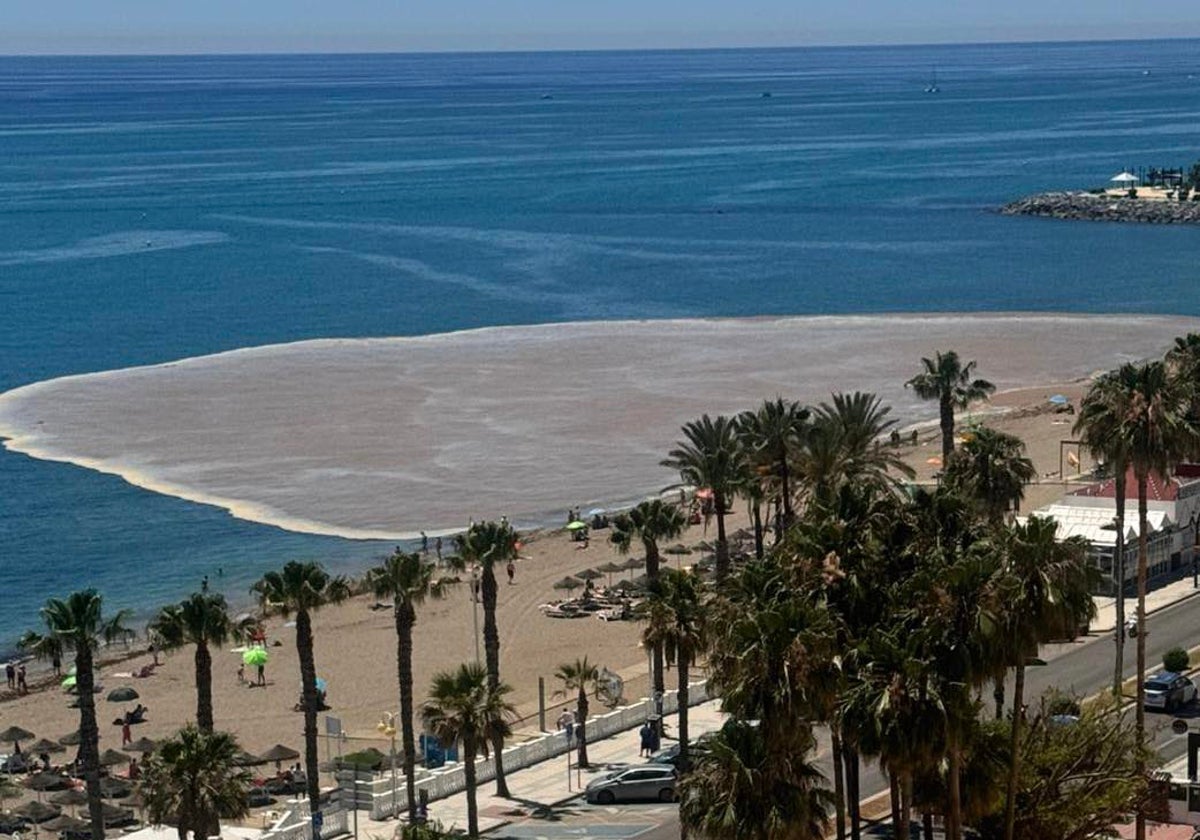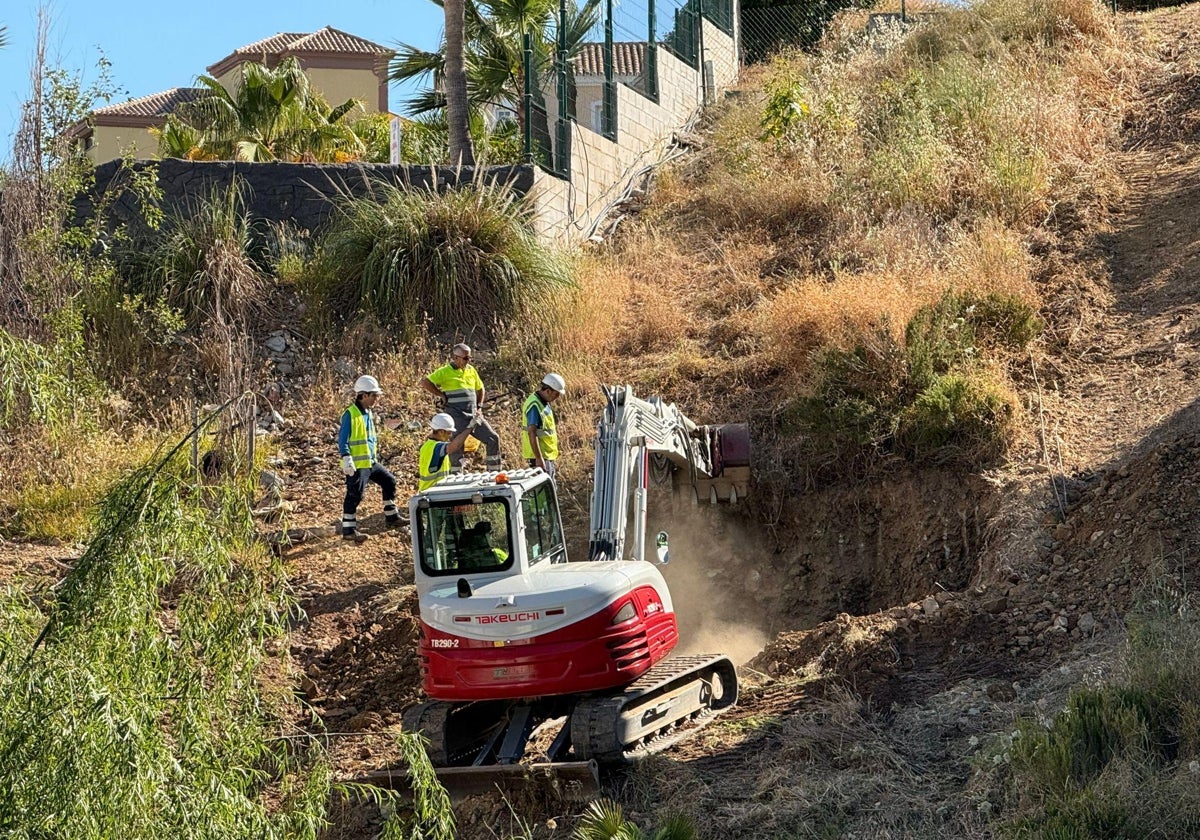Five major water pipeline bursts in a year on western Costa del Sol highlight urgency of upgrade work
Benalmádena has been the worst affected town, with three reported within the municipality since last July
The western Costa del Sol has recorded five major water pipeline bursts in less than a year, three of them in Benalmádena, which has experienced the worst situation from last July until now.
All three bursts in Benalmádena have had a significant impact on the town. The most recent one happened on Monday, affecting the pipeline that supplies half the town. Because it has a high rate of flow, it was necessary that the water was diverted to the river and from there - to the sea. Although the water it supplies is potable, it became mixed with soil and ended up causing a large brown stain that could be seen on the stretch of coast from the Sunset Beach to El Bil Bil castle.
The two previous 'scares' happened on Calle Medina Azahara, in the Arroyo de la Miel district. Both concerned the same pipeline, which burst in two different sections of the street. The first accident took place in July last year and the second in November. In both cases, the flow of water came out with such force that it caused flooding in the street, in the garages and a sinkhole in the road. Repair work took weeks on both occasions.
The other two bursts affected Fuengirola and Mijas. Like Benalmádena, Mijas was hit this May. The incident concerned a sewage pipe that runs along the coast. It burst on El Charcón beach, where it caused a leakage of untreated water, which prompted the immediate closure of the beach to visitors. The area remains closed for the duration of the repair work.
The Fuengirola incident happened on 26 December. A pipe burst on Calle Arquitectos, disrupting part of the supply in the municipality and in Las Lagunas de Mijas.
Except for the El Charcón incident, which concerned the sewage network, all others occurred in the high-pressure water network, that is, in the large-scale drinking water pipeline that comes from the La Concepción reservoirs and reaches the water storage deposits of each municipality, both managed by Acosol.
The potable water pipeline concerned is one of the oldest on the Costa del Sol. Many of the installations were built between the 70s and the 80s and have been suffering from ageing, as well as wear and tear. In order to renovate them, Acosol has included necessary work and interventions in its investment plan for 2025-2029.
Acosol has given the highest priority to the replacement of this pipeline, but there is no specific date or timeframe for the renovation at the moment.
Three days to repair the pipe in Benalmádena
Acosol started repairing the burst pipe in Benalmádena on Monday afternoon, immediately after the latest incident. It estimated that the work would take a maximum of three days. However, the town's supply has not been affected, because water has been diverted from other areas.


